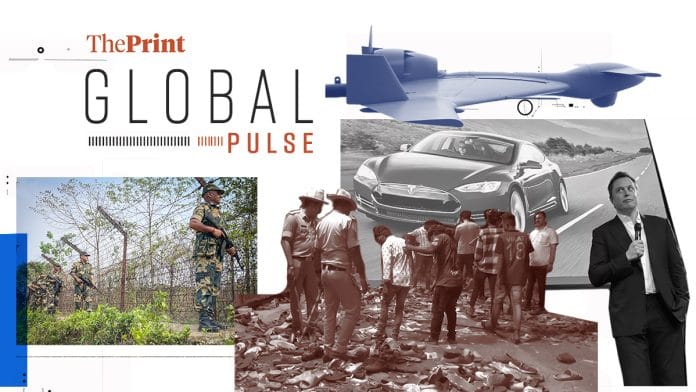New Delhi: A “deadly stampede” in Bengaluru’s Chinnaswamy stadium resulted in the death of at least 11 people, while dozens more were injured, Mujib Mashal and Suhasini Raj report for The New York Times.
A celebration of Royal Challengers Bengaluru’s maiden victory in the “cash-rich” Indian Premier League’s 18-year history turned awry after “uncontrollable crowds” turned up.
Six bodies and 19 injured people were taken to Bengaluru’s Bowring Hospital, its director, Manoj Kumar, told the NYT. “All but one of the dead were in their teens or 20s.”
Officials at a second hospital, Vydehi, told the reporters that four bodies and 12 injured people had been taken there.
According to a report by The Associated Press, “stampedes are relatively common in India when large crowds gather”, mentioning the stampede at the Maha Kumbh in January, which killed at least 30 people.
Returning to last month’s conflict, in an opinion article for the Wall Street Journal, columnist Sadanand Dhume discusses ‘Mideast power plays’ in the India-Pakistan conflict.
Israel has emerged as one of India’s primary defence partners, unimaginable a few decades ago, given that India only established diplomatic relations with the country in 1992. Meanwhile, Pakistan has the support of Turkey.
“Neither country trumpets bilateral defence ties, but the numbers speak for themselves,” writes Dhume. According to the estimates from the Stockholm International Peace Research Institute (SIPRI), quoted in the WSJ article, Israel was India’s third biggest arms supplier between 2020 and 2024—after Russia and France.
During this period, India was the foremost buyer of Israeli arms in the world, accounting for 34 percent of Israeli arms exports. “Over the past two decades, major Indian purchases from Israel have included Phalcon airborne early warning and control systems, sensors, drones and surface-to-air and antitank missiles,” says the article.
The BBC reports on the “crackdowns in India on alleged illegal immigrants from Bangladesh”. One such person is Shona Banu, one of 13 people from Assam’s Barpeta district who were “forced to cross over to” Bangladesh, spend a few days in the middle of a field teeming “with mosquitoes and leeches”, only to be brought back a few days later.
“It’s not clear why Ms Banu was abruptly sent to Bangladesh and then brought back,” reports Arunoday Mukharji. “But her case is among a spate of recent instances where officials in Assam have rounded up people declared foreigners by tribunals in the past—on suspicion of being ‘illegal Bangladeshis’—and sent them across the border.”
The BBC, the report said, found at least six cases where people said their family members had been picked up, taken to border towns and just “pushed across”—in Shona Banu’s case, at “gunpoint”.
Despite Tesla opening doors to India by setting up two showrooms in the country, Elon Musk’s EV behemoth doesn’t want to manufacture in the country, according to the Union minister of heavy industries, H.D. Kumaraswamy, Meryl Sebastian reports for the BBC.
“Analysts say the Indian EV market may not be mature enough yet for Tesla to invest locally—EV sales still make up less than 3 percent of overall passenger vehicle sales in India, and locally made alternatives can cost half of what consumers will have to shell out for Tesla’s base model,” the report says.
The BBC also profiles Shubhanshu Shukla, the Indian Air Force pilot who is a part of a four-member crew making a trip to the International Space Station next week.
“Describing the past year as ‘nothing short of transformative’ for him, Group Captain Shukla said he did not have words to describe his excitement,” the BBC reports.
“It has been an amazing journey so far, but the best is yet to come,” he said. “As I go into space, I carry not just instruments and equipment, I carry hopes and dreams of a billion hearts.”
(Edited by Sanya Mathur)
Also Read: How Trump’s visa freeze has hit Indian students, parents hard & King Kohli’s IPL moment






